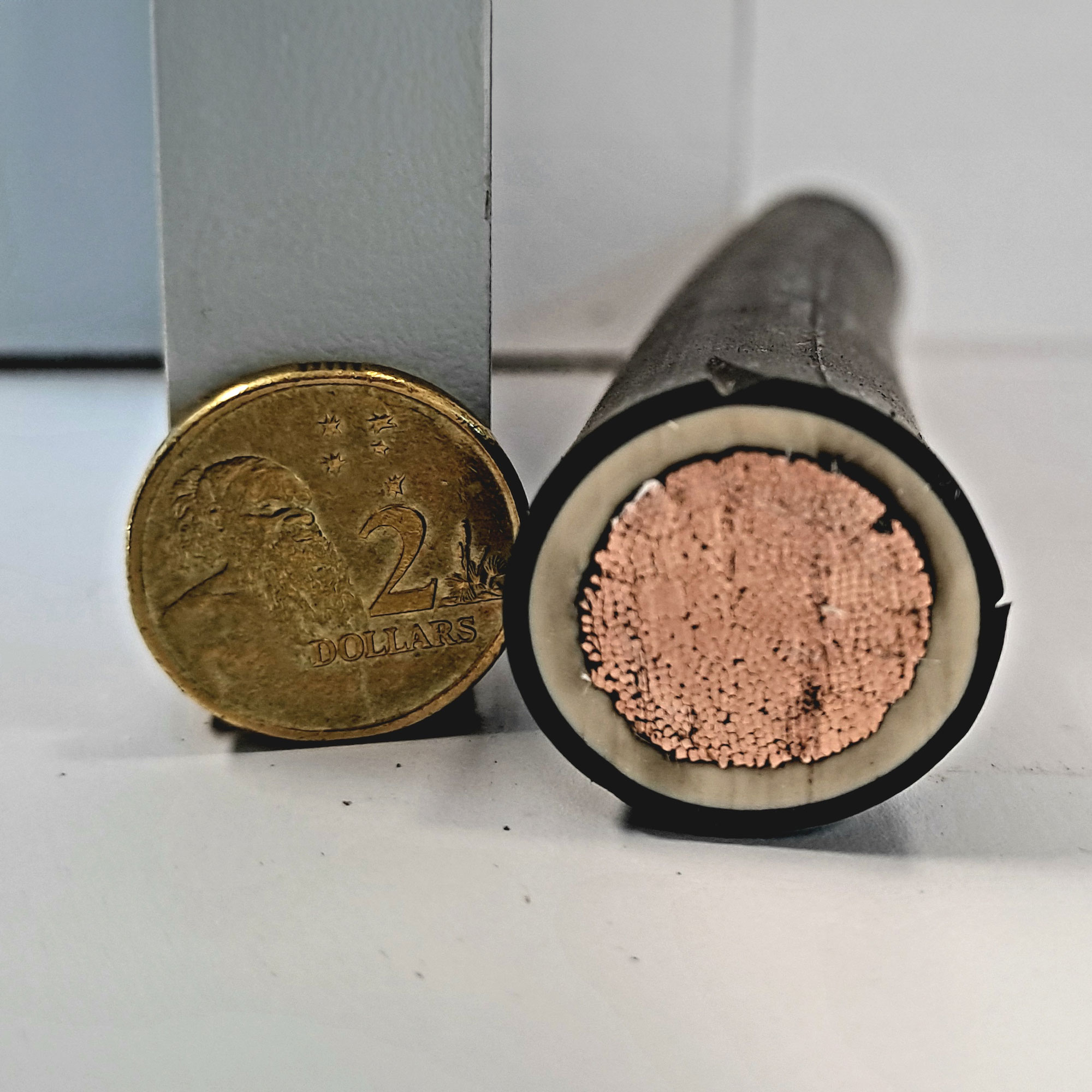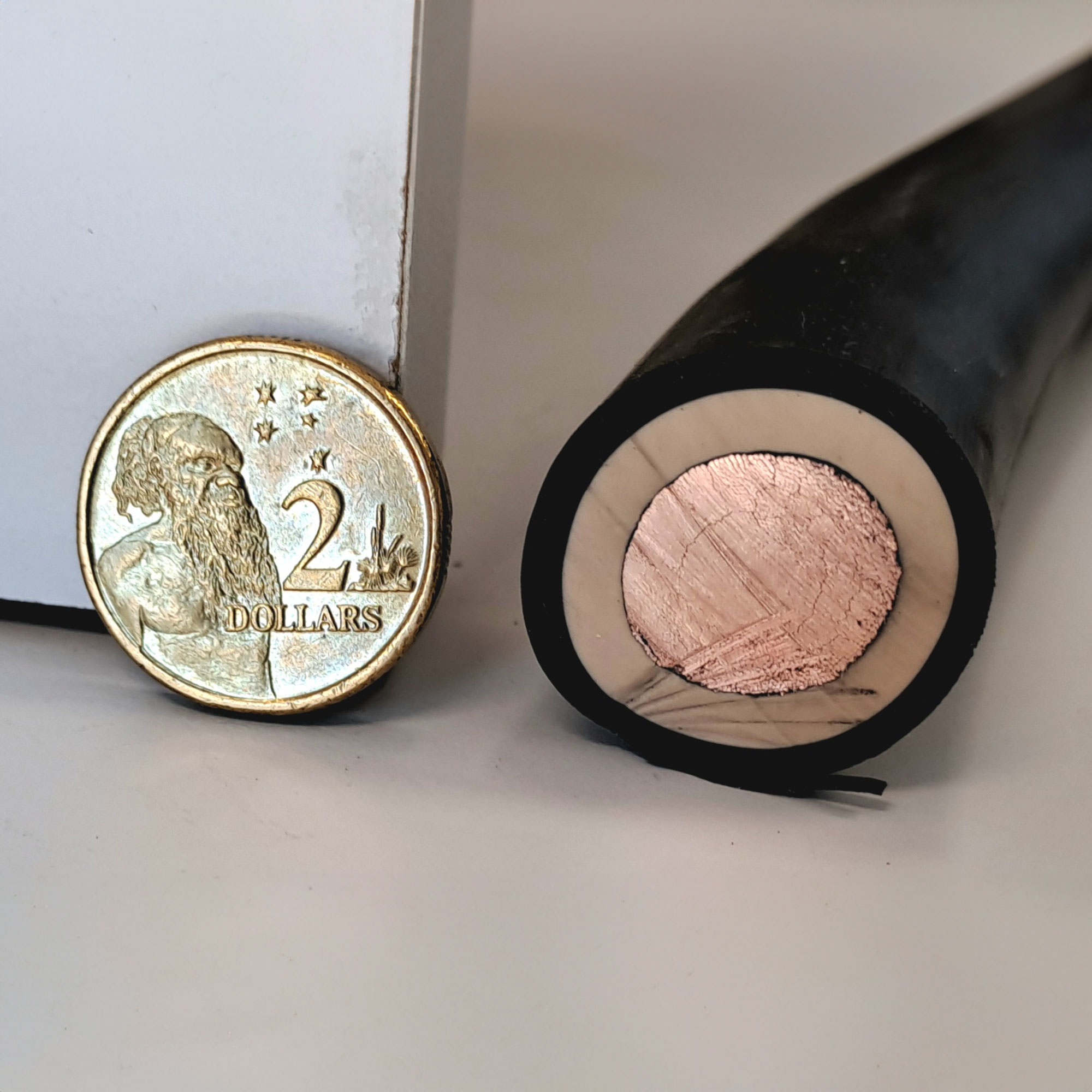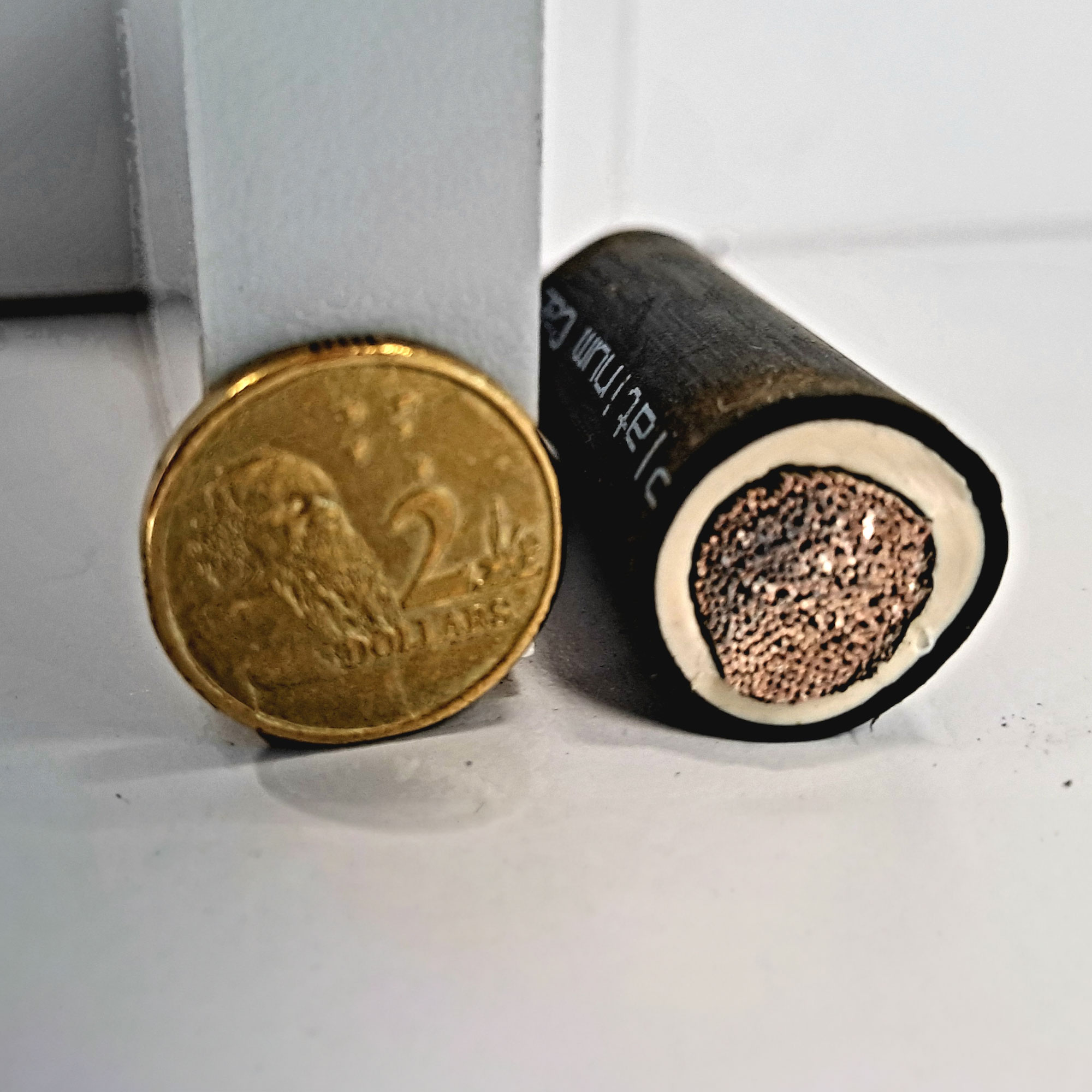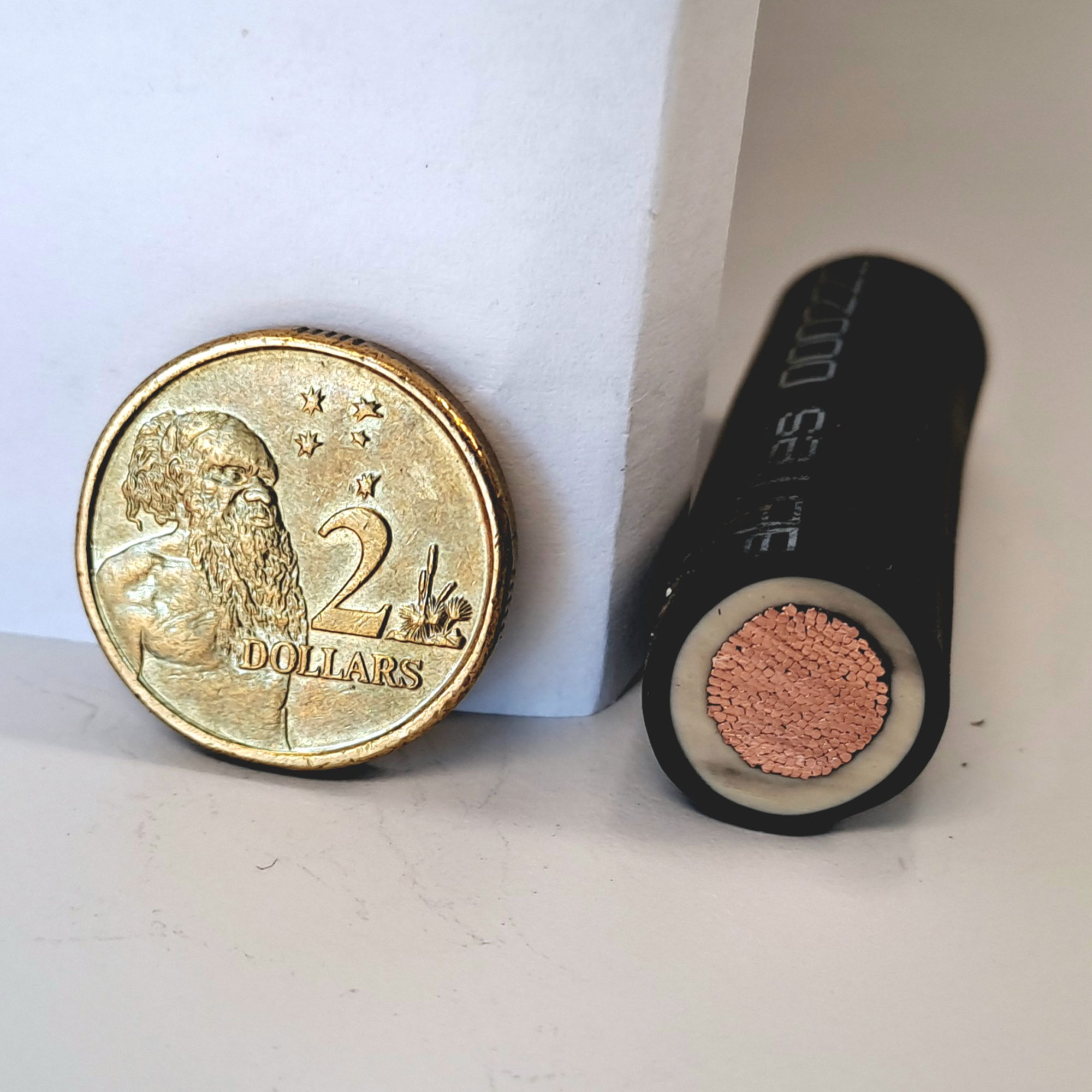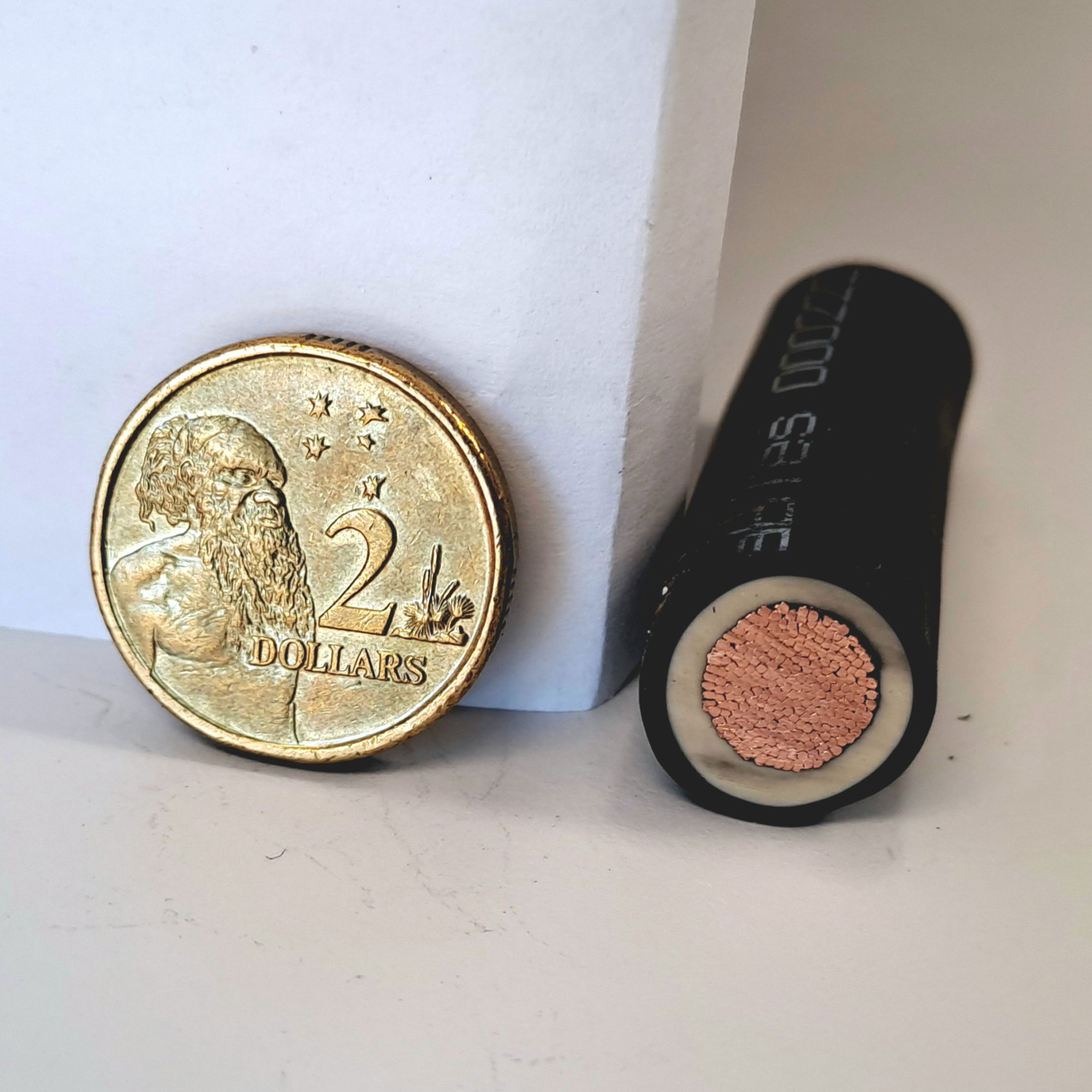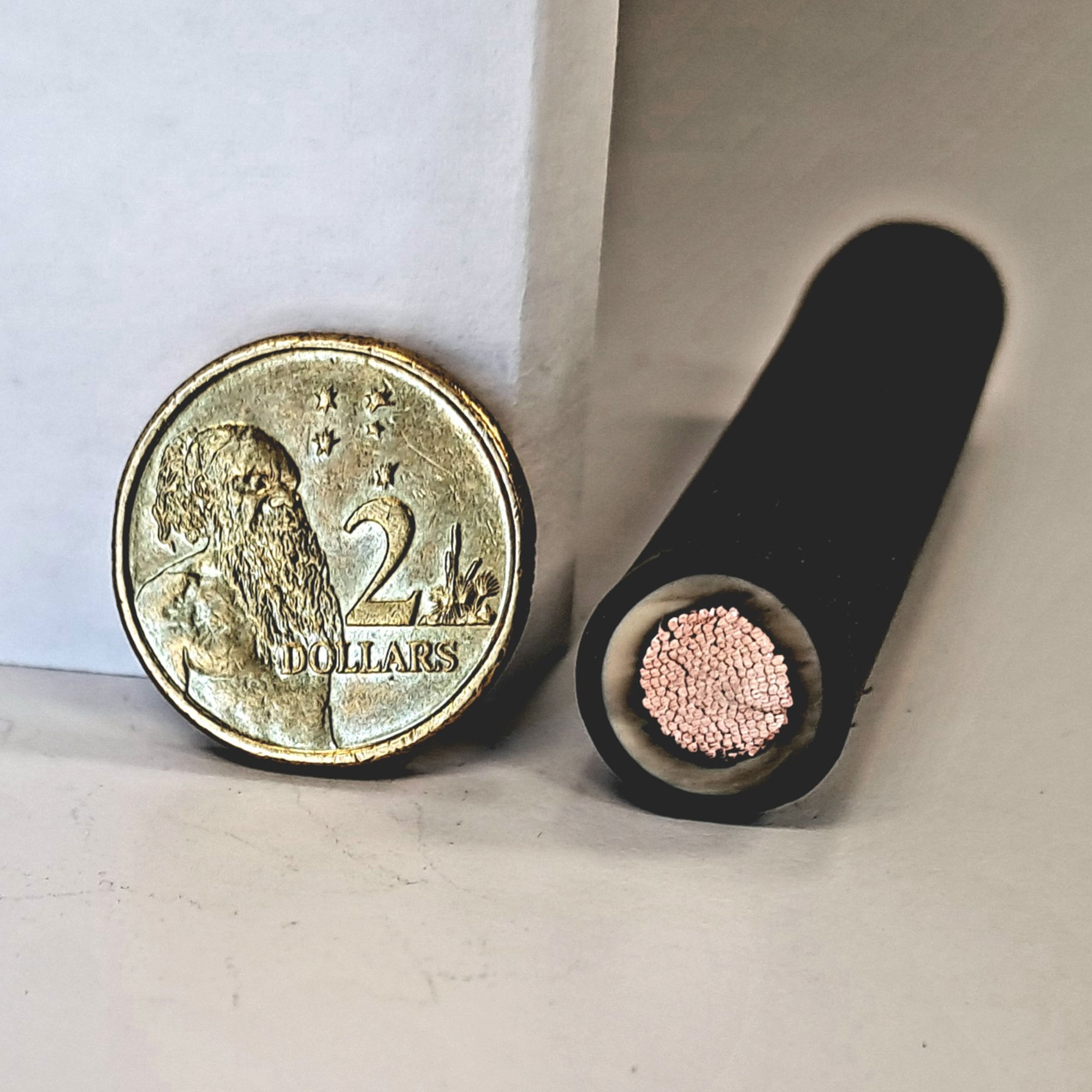Single electric wires, or single core cables, consist of only one conductive core. This means that these wires are designed to provide a single path for transmitting electricity. The conductive material is placed in an insulating layer. The conductive core of a single electric wire is usually made of copper or aluminum.
The main characteristic of single core cables is that they provide a single path for the current to travel due to having only one conductive core. In contrast, multicore cables have multiple conductors within the same insulation. Therefore, single core cables are much simpler in design and construction than multicore cables.
A current-carrying wire generates a magnetic field around it, which can cause interference when interacting with surrounding signals. This magnetic field can affect the quality of power transmission, especially at high voltages.
Therefore, the construction of a single core, where the current passes through only one conductor, is less prone to electromagnetic interference compared to multicore cables. Single core cables are often chosen for high voltage applications because of their ability to withstand high voltages.
